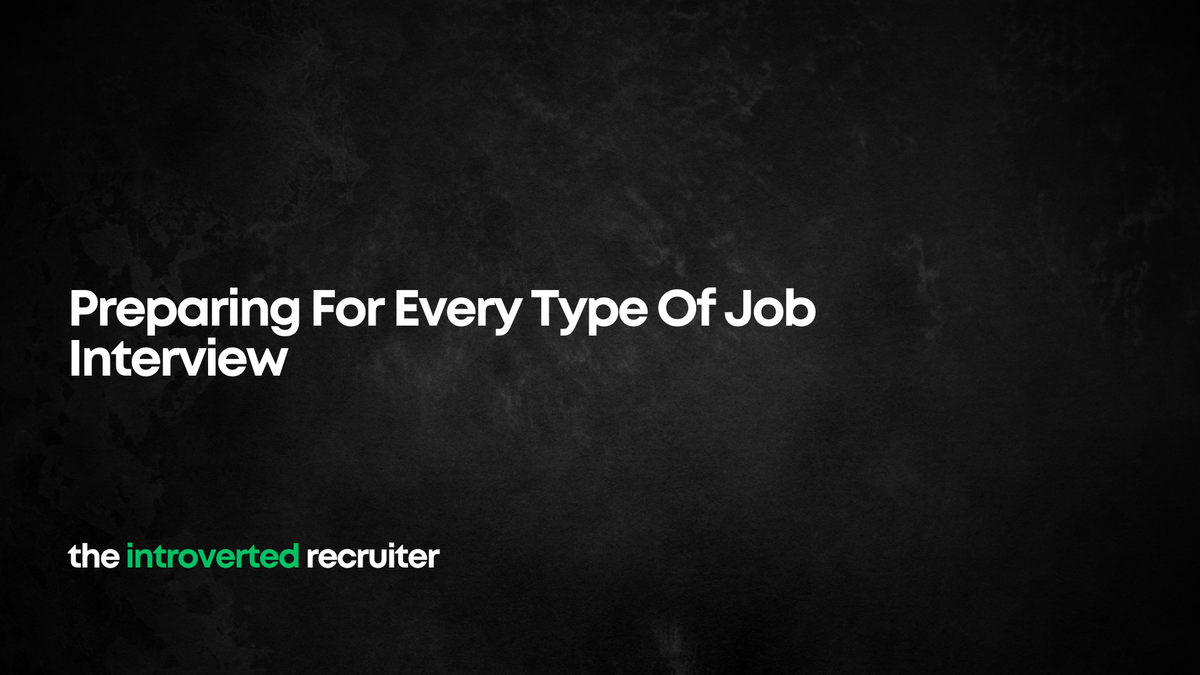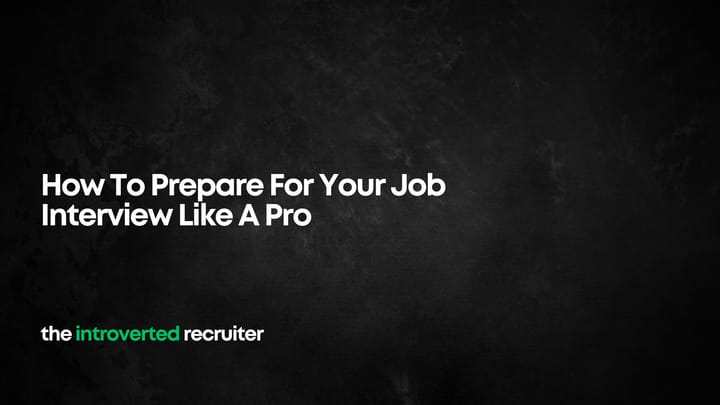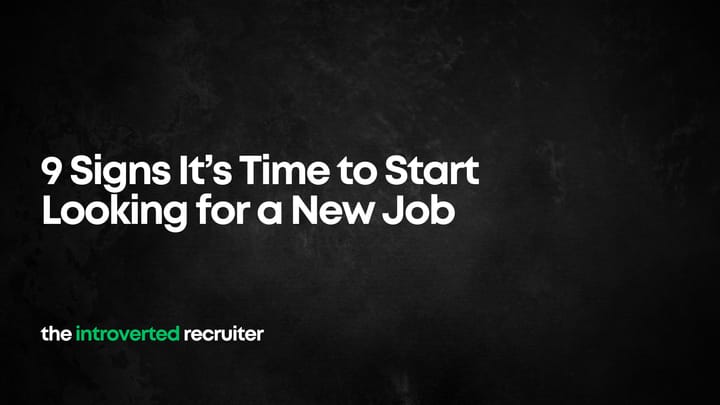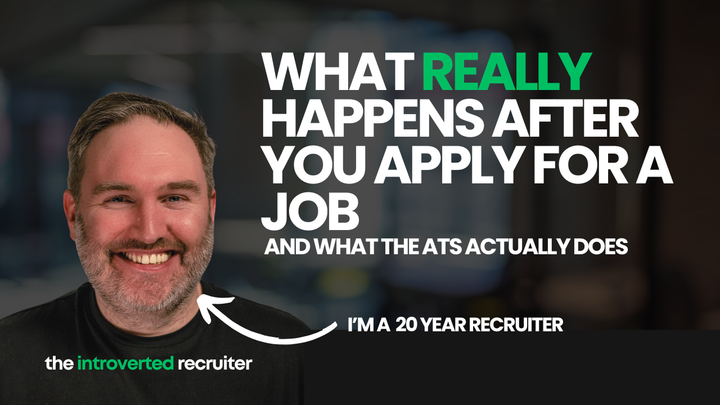Preparing For Every Type Of Job Interview

Preparing for a job interview can feel like an overwhelming process, but the more you prepare, the more confident and relaxed you’ll be when it’s time to sit down with the interviewer.
Here we’ll cover how to prepare for every type of interview, from standard one-on-one interviews to technical interviews and even panel interviews.
1. The Basics: Research and Preparation
Every interview, no matter the format, requires some basic preparation. You should never go into an interview without doing the following:
Know the Job Description Inside and Out:
Re-read the job description carefully and think about how your skills and experience align with the requirements.
Be prepared to discuss specific examples from your past roles that demonstrate you can handle the responsibilities.
Research the Company:
Go beyond the “About Us” page on the company’s website.
Look for recent news, check out their social media presence, and read employee reviews on Glassdoor.
This research will help you tailor your answers to the company’s values and goals.
Prepare Questions:
Asking thoughtful questions not only shows that you’ve done your homework, but it also gives you valuable insights into the role and company culture.
Avoid asking about salary or benefits until the offer stage (you should have already discussed this before any interview). Instead, ask about the company’s goals, team dynamics, and success metrics for the role.
Example Questions:
- "What do you enjoy most about working here?"
- "How do you measure success in this role after the first 6 months?
- "Can you tell me more about the team I’ll be working with?"
2. Behavioural Interviews: Mastering the STAR Method
Behavioural interviews focus on how you’ve handled situations in the past as an indicator of how you’ll perform in the future. The STAR method (Situation, Task, Action, Result) is a structured way to answer these questions.
Here’s how it works:
- Situation: Describe the context of the situation you were in.
- Task: Explain the challenge or task you needed to accomplish.
- Action: Discuss the actions you took to address the task.
- Result: Share the outcome of your actions, including any measurable impact (e.g., increased sales, improved customer satisfaction).
Example:
Question: "Tell me about a time you had to lead a team through a difficult project."
Answer: “At my previous company, we had a critical software project that was falling behind schedule (Situation).
As the project lead, I was responsible for getting the team back on track (Task).
I organized a series of daily stand-up meetings, re-prioritized tasks, and communicated regularly with stakeholders to manage expectations (Action).
As a result, we were able to complete the project two weeks ahead of the new deadline and under budget (Result)."
3. Technical Interviews: Showcasing Your Skills
If you’re applying for a technical role, you’ll likely face a technical interview. This could involve solving coding problems, performing technical tests, or discussing specific tools and methodologies.
Brush Up on Fundamentals:
Make sure you’re comfortable with the basics of your field. For software engineers, this might mean practicing algorithms and data structures. For designers, it could be reviewing design principles and best practices.
Work Through Problems Out Loud:
During technical interviews, it’s important to explain your thought process as you work through problems. Even if you don’t arrive at the perfect solution, demonstrating how you think critically and solve problems can impress interviewers.
4. Panel Interviews: Navigating Multiple Interviewers
Panel interviews can feel intimidating, but they’re just like regular interviews with a few extra people in the room. The key is to stay calm, make eye contact with everyone, and involve each interviewer in the conversation.
Prepare for a Variety of Questions:
Since panel interviews often involve people from different departments, you may get a mix of questions. Some will focus on your technical abilities, while others may ask about how you fit with the company culture or how you handle teamwork.
Engage with Each Interviewer:
When answering questions, try to engage all the interviewers. Even if one person asks the question, make eye contact with everyone, and occasionally direct your answers toward different members of the panel.
5. Video Interviews: The New Normal
Video interviews have become a standard part of the interview process, especially for remote roles.
While they’re similar to in-person interviews, there are a few additional factors to keep in mind:
Test Your Technology:
Make sure your internet connection is stable, your microphone works, and your camera is positioned at a good angle. You don’t want technical difficulties to distract from your performance.
Dress the Part:
Even though you’re interviewing from home, you should still dress professionally. Make sure your background is clean and free of distractions, and avoid any potential interruptions (e.g., pets, kids, noisy neighbours).
Summary
Interviews can be intimidating, but with preparation and the right mindset, they become an opportunity to showcase your skills, experience, and fit for the role.
Whether you’re preparing for a one-on-one interview, a technical test, or a panel discussion, approach each interview with confidence and curiosity.
Remember: the interview is as much for you as it is for them.
Subscribe now to get no-nonsense job search & career advice, and hiring best practices delivered straight to your inbox.
Want More Interviews & Faster Job Offers?
If job hunting is starting to feel like an endless cycle of applications and ghosting, let’s fix that.
I’ve put together some no-nonsense job search tools designed to help you land interviews faster—because you don’t need more stress, you need results.
✅ Free CV Template – A CV Template that will actually help you get job interviews.
✅ The No-Nonsense Job Search System – A step-by-step course to help you cut through the noise and get hired faster.
✅ Job Search Mega Bundle – Essential templates & strategies to streamline your job search.
✅ CV & Cover Letter Bundle – A simple, effective shortcut to applications that actually stand out.
✅ The Ultimate Gude To Job Searching – Practical strategies to fix your CV, ace interviews, and secure job offers.
Grab your free CV & explore the tools here
Your next job is closer than you think—let’s make it happen.
Follow Me
Find me on LinkedIn , TikTok , YouTube or Instagram where I share lot’s of practical no nonsense advice.



